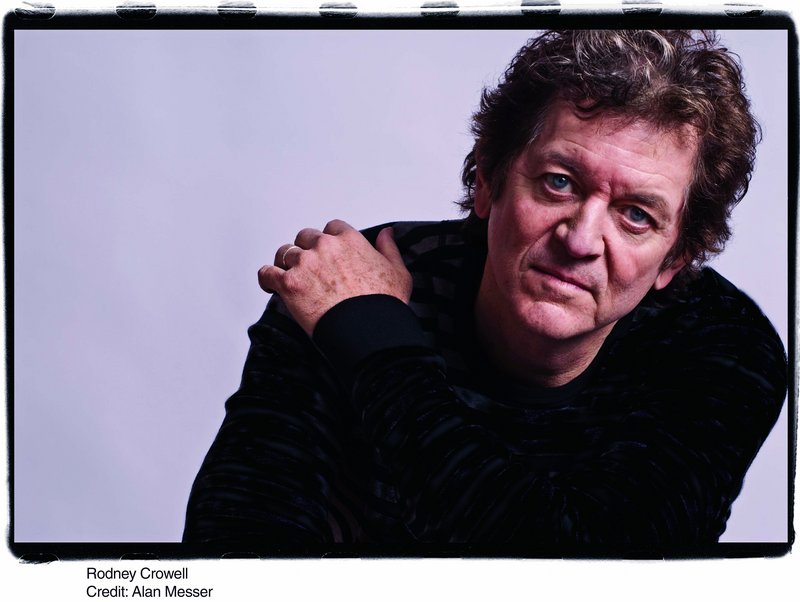You would think that if you picked up the memoir of a professional musician — especially one who has had hit songs and used to be Johnny Cash’s son-in-law — that the memoir would largely be focused on the musician’s career.
But Rodney Crowell has long defied conventional thinking.
The singer-songwriter hit it big in the late 1980s by scoring five No. 1 country singles, including “I Couldn’t Leave You If I Tried” and “It’s Such a Small World” with then-wife Rosanne Cash. He’s also written many hits for others, including “Shame on the Moon” for rocker Bob Seger.
But for much of his career, Crowell has straddled the line between pop and alternative forms of country and Americana music. So it should be no surprise to people who’ve followed Crowell that he cares more about his art than his commercial success.
That’s why, he says, he wrote a memoir that makes almost no mention of his long and successful music career. Instead, “Chinaberry Sidewalks” (Knopf) is about Crowell’s parents and his childhood in East Houston, Texas. There is just one mention of his career — on one page.
“There’s a section where my father talks about Emmylou Harris, and so there had to be some explanation of why my father would know Emmylou Harris on a personal level,” said Crowell, 61. “My intent was not to mention one word of my career; I don’t think it’s that interesting. I think my parents are far more interesting. To write a book about my career that’s a love letter to myself? No, that’s not what I’d want to do.”
Crowell will be at One Longfellow Square in Portland on Friday, performing a solo show and reading from his book.
He said writing the book was part of a “conscious shift” he began to make about 10 years ago to “make art more singular to my sensitivity.”
Much of his success as a musician had come by writing what he calls “broad stroke commercial” music that was about the generalities of love and life. But beginning with his 2001 album “The Houston Kid,” Crowell began to write and record songs that were more specific to his life, to his experiences.
Then he was asked to turn one of his songs into prose for a book Rosanne Cash was editing. And that gave him the idea to try original prose. He said “The Houston Kid” was basically a memoir in song, so he decided to write an actual memoir about his parents, who he says were “crazy, but beautifully so.”
Crowell describes the effects of alcohol abuse and violence on his family, and he found he had to “remain more sane than the older people around me.” But in the end, writing the book made him “fall in love with my mother and father all over again.”
Still, Crowell found it challenging after writing songs for so long.
“When you’re writing songs, you can use these huge metaphors, and you have chord changes and the inflection in your voice and all these other things that help sustain a narrative,” said Crowell. “But putting a narrative down on the written page is very different.
“The only thing that was the same (in writing songs and the book) was the work ethic. I’m not afraid to sit by myself for days and write.”
Staff Writer Ray Routhier can be contacted at 791-6454 or at:
rrouthier@pressherald.com
Send questions/comments to the editors.



